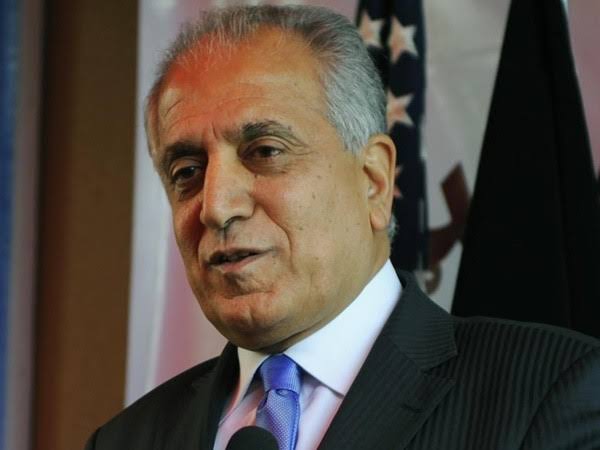Former US envoy for Afghanistan calls for Asif Ali Zardari ‘Pakistani’s MR 10 Percent‘

Former US envoy for Afghanistan Zalmay Khalilzad on Saturday criticised former Pakistan president and Pakistan Peoples Party (PPP) co-chairman Asif Ali Zardari, calling him “Pakistan’s Mr 10 Percent”, Pakistan based Geo News reported.
Khalilzad said the PPP co-chairman should “put the country first and honour the legacy of BB [Benazir Bhutto].”
Zardari had in an interview with senior journalist Hamid Mir on the Geo News program “Capital Talk” on Friday said Khalilzad is a “double agent” who was on “a payroll”.
Zardari was during the interview questioned regarding the support Khalilzad had shown to the Pakistan Tehreek-e-Insaf (PTI), the former ruling party led by Imran Khan.
The former president said Khalilzad was a salaried person. “He is in a lobby and an agent. A double agent of CIA [Central Intelligence Agency].”
When asked about the negative things Khalilzad had written about Zardari in his book, he said: “Of course, why would he write anything good about me? They can’t tolerate anyone who has roots in the country, can save the country, or loves it. Obviously, he won’t write anything nice”, Geo News reported.
The former US envoy in response took to Twitter, and wrote: “Responding to Pakistan’s “Mr. 10 Percent”: I do not lobby for anyone or any country and am no one’s agent. I have shared my sincere concern about Pakistan’s triple crisis, which unfortunately is intensifying, and have suggested what should be done.
“Mr. Ten Percent” should put country first and honour BB’s legacy, to preclude a meltdown that will hurt the 220 million people who — unlike him and others like him, do not own posh homes in several countries that they can run away to.
The Pakistani establishment and the country’s political leaders must commit to rule of law, starting by not splitting the Supreme Court, but instead, implementing its decisions.”




